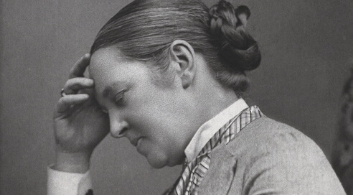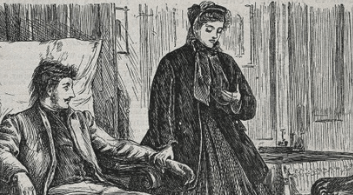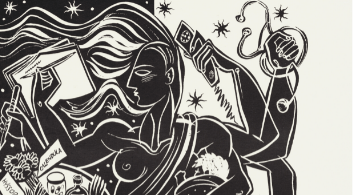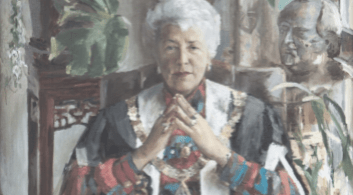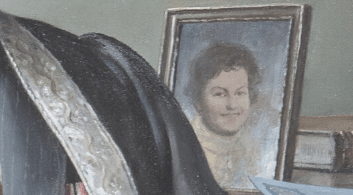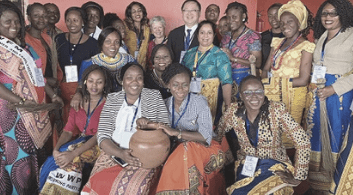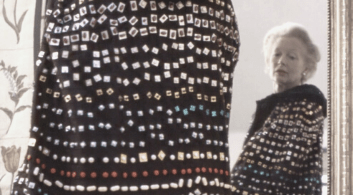Important IT system upgrade
From Friday 12 December
We’re carrying out an important upgrade to our systems to improve the services we provide to our members. This means that access to online systems and contact points, including MyRCGP and the member helpdesk, will be temporarily unavailable from 16:00 on Friday 12 December, with a gradual restoration of services from Monday 15 December.
Historically seen as carers to their families and friends, women's role in formal medicine has provoked controversy from both men and women, particularly from the mid-1800s onwards as the medical professions became more strictly regulated. Many women doctors who qualified from the late 1800s worked in general practice because family medicine in the community appealed to them, but also often because other roles were unavailable because of their gender.
Many women doctors who qualified from the late 1800s worked in general practice because family medicine in the community appealed to them, but also often because other roles were unavailable because of their gender.

When the College of General Practitioners was founded in 1952, women played a key part as founder members and associates, but also in leadership. Having served as a member of the General Medical Council and as President of the Medical Women’s Federation, Annis Gillie (1900-1985) wrote to the steering committee that established the College in 1952 offering her help. She became a founder member, an early member of the College’s council, its first woman chairman in 1959-1962, and first woman president between 1964 and 1967.
Clare Gerada, current RCGP President, wrote “Without Annis's vision, determination and drive, the specialty of general practice might have been lost to history, unable to cope with the vicissitudes of the rapidly changing landscape of the Health Service.”
Image: Katharine Annis Calder Gillie DBE, Mimi Winter. Credit: RCGP collection/Tamás Kolóti Photography.

Today, over 50% of general practitioners are women, and the College has had four women Chairs and six women Presidents. General practice is dependent on teamwork, and this wider team of receptionists, practice managers, nurses, health visitors and pharmacists are also primarily women.
Of course, the impact on patients – of all genders – is also significant.
What role does gender play?
Image: A unique moment with 5 female RCGP Chairs simultaneously in post: Dr Carey Lunan, Chair RCGP Scotland; Dr Grainne Doran, Chair RCGP Northern Ireland; Prof Helen Stokes-Lampard, Chair RCGP; Dr Rebecca Payne, Chair RCGP Wales; Dr Jodie Blackadder-Weinstein, Chair National First5 Committee.
Key dates
1859 Dr Elizabeth Blackwell appeared as the only woman in the first British Medical Register
1865 Elizabeth Garrett was the first woman in Britain to qualify as a doctor when she achieved the Licence of the Society of Apothecaries
1918 The Representation of the People Act saw voting rights granted to some women, and all men, for the first time
1952 The Royal College of General Practitioners was founded
2014 There were more women than men working as GPs for the first time
Deeds and words self-guided walks
To accompany the exhibition, choose from two self-guided walks, both starting at 30 Euston Square, to trace the steps of remarkable women, in medicine and beyond.
- Deed and words circular walk (PDF file, 3.1 MB)
- Deeds and words walk (RCGP to RCP) (PDF file, 5.5 MB)
Foundation members
Find details of the women who joined the College as Foundation Members and Associates in its first years.
Contributors
With thanks to Briony Hudson, Philip Milnes-Smith, Guy Jackson, Sharon Messenger, Kate Adams, Michael von Graffenreid, Bill Reith, Kari Millar, Colin Hunter, Martyn Thomas, Liz Lee, Susie Freeman, Nish Manek, Patricia Wilkie, Angela Rosenfeld, Abi Berger, Ali Wells, Herbert Art Gallery and Museum, Juliet Boyd, Helen Kilminster, Val Wass, Helen Stokes-Lampard, Carey Lunan, Margaret Ikpoh, the Worshipful Society of Apothecaries, Oxford Medical Alumni, D&C Thomson & Co Ltd, Kate Charlesworth, Gillian Davies, Helen Bayliss, Sally Hull, Gill Yudkin, Robert McGibbon, Iona Heath, Jacky Hayden, John Ford, Rosemary Ford, Ann Telesz, Aaliya Goyal, Zirva Khan, Omon Imohi, Shamarah Mathurin-Charles, Maggie Eisner, Peter Tooley, Paul Schatzberger, Swéta Rana.

Contact us
If you have stories or material to share that links to your experiences of women and general practice, we would love to hear from you: heritage@rcgp.org.uk
Thank you for your feedback. Your response will help improve this page.

